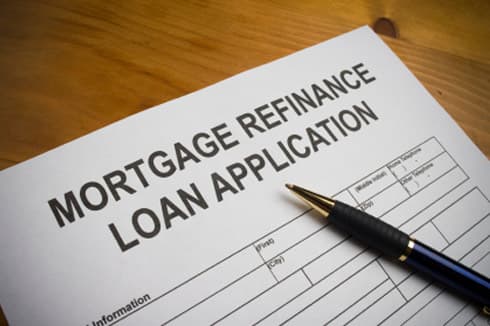- The Bills.com Refinance Calculator will help you learn how much you will save in a refinance.
- Six factors determine if a refinance makes sense financially.
- Learn four reasons why you should refinance.
Learn the Six Factors to Consider When Refinancing a Mortgage
A Refinance Rate Depends on the Homeowner's Financial Health
Homeowners refinance for one of four reasons:
- Rates have fallen and the homeowner wants to save money
- The homeowner's financial situation has significantly improved and he or she qualifies for a lower rate
- The homeowner needs money for home improvements and are borrowing against the equity
- The homeowner wants to add or remove a person to/from the loan
Refinancing a mortgage or deed of trust is a good choice when rates fall below the homeowner's current rate or if the homeowner has a variable rate loan. A homeowner can refi for the present balance due, or take cash out, depending on how much equity is in the home.
Regardless of your reason for refinancing, your new rate will depend on your:
- Current credit score
- Income history
- Current debt-to-income (DTI) ratio
- Payment history
- Home equity, also called the loan-to-value (LTV) ratio
Lenders do not offer rock-bottom refinance rates to borrowers with a poor credit history, little equity, or low income. To ensure a good rate, clean up your credit before you apply for a new mortgage.
You can find current refinancing mortgage rates online. These rates are usually for people with credit scores above 680. To find rates for a variety of credit scores, see the Bills.com Current Refinance Mortgage Rates page.
Six Factors to Consider Before Refinancing
Before refinancing your mortgage, take these six factors into account:
- Interest rate on your existing loan
- Interest rate on the new loan
- Whether the rate is fixed or adjustable
- Closing costs and fees
- Loan term
- Time to recoup costs
See the Bills.com Refinance Calculator to learn if refinancing is right for you.
Here is a brief look at the factors weighing in a go/no-go refinance decision. If your existing loan rate is lower than current rates, then you would be better off applying for a home equity loan. If the interest rate on the new loan is lower than your existing loan, consider the additional factors. If your existing loan is an adjustable rate and rates will soon reset, locking in a fixed rate can save you money over the long term.
Some lenders offer refinance loans with no closing costs and no fees. Unfortunately, these loans have a higher interest rate than loans with closing costs and fees. Compare both rates and figure out whether paying the costs will save you money in the long term.
You should also consider the new loan term. For a simple refinance without a cash-out, ask that the loan have the same term as the term left on your existing loan. If you have 25 years left, your new loan should have a 25-year term. You may erase your savings if you refinance to a rate that is only slightly lower, but adds several more years to the loan.
Finally, consider how long it will take you to recoup the costs of refinancing. If you only plan to stay in the home for three more years and it will take five years for your savings to total more than your refinancing costs, then refinancing is not worth it.
If you need to refinance to consolidate debt or make home improvements, then consider those costs as well when making your decision. When done right, refinancing can save you thousands of dollars over the life of the loan.
